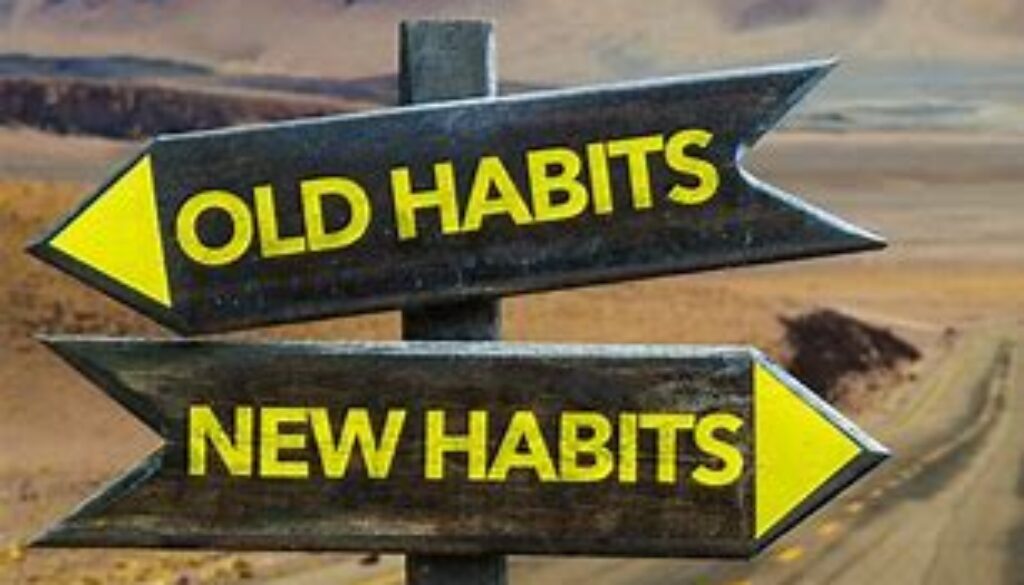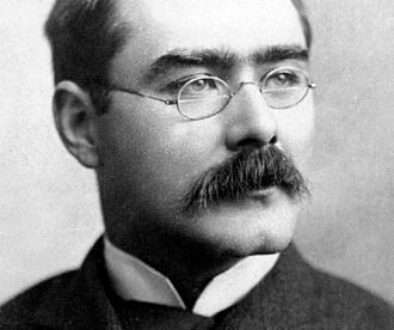Habits – What is it all about, How can Habits be Changed and New Ones Developed?
Menanteau Serfontein – 29 April 2021
Did you know that around 45% of everything we do on a daily basis is habitual?
We all have habits. We have some great habits that have stood us in good stead and that we certainly would not want to change. We also have bad habits that we wish we didn’t have, but are unsure how to change or remove the unwanted ones. The good news is that unwanted habits can be broken.
In this Article we will help you understand why habits are at the core of everything you do, how you can change them, how to develop new habits and how long it takes.
Charles Duhigg, the Author of the Bestseller “The Power of Habit” (which is generally regarded as the most authoritative source on the topic of Habits) says “Once you understand that habits can change, you have the freedom and the responsibility to remake them.”
What is a “Habit”?
A “habit” is one’s customary way of doing things; routine behaviours displayed on a regular basis (often unconscious patterns of behaviour) that are acquired through frequent repetition.
According to Duhigg, habits are actions that people decide to do intentionally and continue subconsciously. He also describes a habit as an activity that a person intentionally decides to perform once and continues doing without having to focus on it anymore because it performs with a certain frequency.
“Our character is basically a composite of our habits. Because they are consistent, often unconscious patterns, they constantly, daily,
express our character.” – Stephen R. Covey, Leadership Expert and Author
“Habit is the intersection of knowledge (what to do), skill (how to do), and desire (want to do).” – Stephen R. Covey
“In essence, if we want to direct our lives, we must take control of our consistent actions. It’s not what we do once in a while that shapes our lives, but what we do consistently.” – Tony Robbins, Author and Motivational Speaker
“Depending on what they are, our habits will either make us or break us. We become what we repeatedly do.” ― Sean Covey, Business Executive, Author and Speaker
We are all characterized by what we do (and not do), what we say (and not say) and how we do and say things. In my experience, what and how we think coupled with what we say and do, probably has the most dramatic impact on most aspects of our lives.
Lao Tzu, the ancient Chinese philosopher and writer said the following: “Watch your thoughts, they become your words; Watch your words, they become your actions; Watch your actions, they become your habits; Watch your habits, they become your character; Watch your character, it becomes your destiny.”
Our habits, including our habitual way of thinking, play a key role in our successes and failures in life as well as the extent of our inner joy, peace and contentment, our physical health, our mental health, our finances, our role as a spouse, a parent, a grandparent, or a friend and our effectiveness and productivity at work. All of us have habits that have a profound impact (positive and negative) on our life.
It is essential to realize that we are not helpless victims of our habits. The question is what are your current habits compared to what you would like your habits to be. We should not blame our past, our parents and our circumstances for our habits. Each one of us has a CHOICE how to live our lives and by implication, we can CHOOSE our habits. We should look at ourselves in the mirror and decide whether there is a need to change some of our habits, and if so, what are we going to do about it? You can become what you desire to be.
“Feeling sorry for yourself, and your present condition is not only a waste of energy but the worst habit you could possibly have.” – Dale Carnegie
Remember that Duhigg says that people can change their bad habits if they learn how the habits work.
Why do we have Habits?
Habits arise because the brain constantly looks for ways to save effort. This is because habits decrease the effort to which our minds are subjected to at the moment when we perform a certain task. An example of this is learning to drive. At first it may seem difficult, but over time, the routine becomes automatic, i.e. it requires less mental effort. Therefore, the habits that allow you to operate on autopilot are super-important. Brain activity is much lower when executing the routine part of the habit loop (this concept is dealt with lower down). Duhigg refers to “Chunking” which is the brain’s process of converting a sequence of actions into an automatic routine that allows our brains to save energy and size for other things, i.e. they free your mind and energy for new situations and new problems that require new decisions, creativity and actions.
All habits have a function. Mindless eating could be a way to comfort yourself when you’re feeling down. Cruising the Internet for hours might be a way to avoid interacting with your spouse or kids. Smoking (in addition to being addictive) may be a way to take time out to pause and think. Drinking too much may be the only way you know how to be social. If you want to break the habit, you have to come to grips with whatever function the bad habit is serving.
Samuel Johnson, Author and Poet said “The chains of habit are too weak to be felt … until they are too strong to be broken.”
How Habits are Formed
Benjamin Franklin, a previous American President, said “It’s easier to prevent bad habits than to break them.”
“We are our own potters; for our habits make us, and we make our habits”. – Frederick Langbridge, Author and Poet.
According to Duhigg, the habit process, which he calls the “Habit Loop”, consists of a three-phase loop, i.e. the cue, routine and reward:
The cue is the trigger that causes the habit to occur in the first place, i.e. it is a stimulus that sends your brain into automatic mode, and indicates which habit it should use.
The routine is the behaviour itself that can be physical, mental, or emotional.
The reward, which helps your brain to know whether it is worth memorizing this specific loop for the future.
When the cue and reward connect, the brain develops a strong sense of expectation, leading to a desire and the birth of a habit.
Habit loops eventually form a craving, i.e. the anticipation of a reward. Habitual exercisers crave the “good feeling” after a workout, or another specific reward, or are envisioning a result.
Unfortunately, the brain does not judge whether the new habit is beneficial or harmful, so bad habits are also ingrained. However,
you can change destructive habits and adopt new and positive ones by understanding and managing the information retrieval cycle. Focus on your cues and rewards and change your routine to thwart the desire.
For most people, habits are hard to change. We need most of the habits we have. We go through most of our days engaging in good habits, routines and activities. If we didn’t, everything we did every day would be something we’d have to think about. Instead, we’re wired to learn and put in place activities that sustain us without giving it a moment’s thought. Once a routine is sorted into the “automatic” category, it’s hard to get out of it.
Understanding how your habits fit into these loop stages can help you change them.
Duhigg discovered that at the root of all habits, like drinking your coffee every morning, lies a simple 3-part loop.
The cue is what triggers you to do the habit, for example sitting down at your kitchen table to have breakfast every morning at say 7 a.m.
The routine is the behaviour you then automatically engage in, which, for drinking coffee, might be to go over to your coffeemaker, turn it on, and press the “large cup” button.
Lastly, you’ll receive a reward for completing the routine, such as the rich smell of your coffee, it’s hearty taste and getting to watch the steam rise from the cup as it sits on your kitchen table in the sunlight.
Your brain’s activity only spikes twice during this loop. At the beginning, to figure out which habit to engage in, and at the end, when the link between cue and routine is reinforced.
How can Habits be Changed and New Habits be Developed?
“A habit cannot be tossed out the window; it must be coaxed down the stairs a step at a time.” – Mark Twain
“You’ll never change your life until you change something you do daily. The secret of your success is found in your daily routine.” – John C. Maxwell
Correcting habits is difficult because they satisfy desires. Changing fundamental habits can drive new good behaviours or change bad ones.
Duhigg points out that people tend to think habitual behaviours like addiction can be stopped through punishment, when they’re really driven by reward. He refers to the “The Golden Rule” of habit change that states that if you use the same cue and offer the same reward, it is possible to change the routine and thereby change or replace the habit. You can change your habits by substituting just one part of the loop, i.e. the routine. The core of the Golden Rule is that a habit can be changed by changing the routine, and leave everything else intact.
Duhigg presents habits as the key to exercising regularly, losing weight, educating children well, becoming a more productive person, creating revolutionary companies, and being successful.
Smokers have a cigarette cue and a rush reward – replacements for the routine can include nicotine gum, caffeine, or other things. This can be used for small behavioural tics – such as nail biting – as well as large problems like addiction.
It is important to highlight that, although the process of changing habits is easy to expose, it does not mean that it is simple to perform. Real change requires dedication and self-understanding of what encourages your habit. No-one will stop smoking because they know their own loop, but understanding it will provide ways to plan how to change their behaviour.
Remember that if you can recognize cues and rewards, you will be able to change the routine.
Some of the major steps covered in the summary of the book “The Power of Habit” that will help in changing current habits or developing new ones are outlined below:
Isolate the cue: as soon as you feel the urge to do what you want, instantly write down 5 things: the place, the time, the emotional state, which people are close to you, and what was the preceding action that was taken. Do this a few times, observe what is repeated, and then you have the cue (trigger);
Identify the routine: discover the routine that surrounds that habit;
Experiment with rewards: find out what reward that habit seeks to achieve. Test different things to find out if the feeling you are experiencing is the same as that habit;
Duhigg explained as follows how he changed his cookie habit:
I had this bad cookie habit where in the afternoon, I would get a chocolate chip cookie in the cafeteria. As I talked to the scientists, I would ask them, How should I change this?
Well, first you need to define the cue and the reward to change the behavior. Most cues fall into one of five buckets: a time, a place, a certain emotional state, the presence of other people or a preceding action.
What I did for a couple of days was every time I felt the cookie urge, I wrote those five things down. It became clear that I was cued by certain time of day, around 3:15 to 3:45 and then I needed to figure out the reward.
It’s easy to say it was the cookie itself, but I ran experiments. One time I took a walk around the block. Or instead of the cookie, I’d have an apple or a cup of water. But each time, I would talk to my colleagues and I would socialize, and then … it became clear that it was the socializing and not the cookie that really was important. As long as I socialized, the cookie urge would go away and if I didn’t socialize, it didn’t matter what I ate.
So now I look around for someone to go and gossip with and I do that for 10 minutes and I don’t have the cookie urge anymore.
Have a plan: once the cue and routine have been identified and the reward has been selected, have an action plan (preferably in writing) to break the loop related to the given habit. Even if it seems difficult, insist until this plan becomes your new habit and you start to carry it out automatically.
Get yourself a buddy: There’s a reason that many recovery programs include group meetings and individual sponsors or therapists. Being accountable to others is a powerful incentive to persevere. By both giving and receiving support, you keep the goal in focus. Being accountable to a friend (in person or virtual) helps you to stay on track.
There is no magic formula that will automatically change your habits, but with time and effort, habits can be shaped.
With willpower (coupled with self-control) and belief, people can change their habits if they can examine and analyze them to uncover understandable clues, routines, and rewards.
Not all habits are created equal and Duhigg says willpower is by far one of the most important ones, as it helps us do better in all aspects of life. The Habit of willpower can be strengthened incrementally over time with the following 3 things:
- Do something that requires willpower and self-control. Start applying the principle of delaying gratification with easy, ordinary things, for example when you feel like having chocolate or coffee now, you decide to delay it for say an hour or until you have finished a task. Celebrate the small wins. Gradually increase the application of delayed gratification throughout your day in other areas. By doing this, you will strengthen your willpower and self-discipline to enable you to embark upon more challenging habits such as a tough wake-up routine or strict diet.
- Preserve your autonomy (personal responsibility). Preserve and protect your autonomy by taking personal responsibility for decisions, choices, actions and behaviour wherever possible, without waiting on instructions from others. When you relinquish personal responsibility, your willpower also goes down the drain.
- Plan ahead for worst-case scenarios. Wherever possible, plan ahead for worst-case scenarios, before it happens. Doing so, you will have a much better chance of controlling your emotions and feelings and dealing wisely with the situation. One example could be to think how you would react if your boss yells at you at you before it ever happens – this will help you not lose your cool when he does.
This will assist you to develop great willpower and self-control in the long run!
How long does it take to break a habit or create a new one?
According to Duhigg, the time it takes to break or create a habit differs from pattern to pattern. If it’s something like eating chocolate, you can probably develop one in 5 to 7 minutes. Things we really enjoy are usually easy to establish as habits, whereas something like exercising takes a bit longer. There’s no hard and fast rule. But there is one rule: a habit has to deliver a reward that you actually enjoy.
We know from studies that the best way to develop an exercise habit is during the first week or two, give yourself a piece of chocolate or some other treat that you really enjoy right afterwards because you have to teach your brain to enjoy exercise for exercise’s sake.
Brian Tracy says that the time period to break or create a habit can be any length from a single second to several years. The speed of new habit pattern development is largely determined by the intensity of the emotion that accompanies the decision to begin acting in a particular way.
Many people think, talk about, and resolve to lose weight and become physically fit. This may go on for years. Then one day, the doctor says “If you don’t get your weight down and improve your physical condition, you’re in danger of dying at an early age.”
Suddenly, the thought of dying can be so intense or frightening that the individual immediately changes his diet, begins exercising, stops smoking, and becomes a healthy and fit person. Psychologists refer to this as a “significant emotional experience.” Any experience of intense joy or pain, combined with a behaviour, can create a habitual behaviour pattern that may endure for the rest of a person’s life.
Putting your hand on a hot stove or touching a live electrical wire will give you an intense and immediate pain or shock. The experience may only take a split second. But for the rest of your life, you will have developed the habit of not putting your hand on hot stoves, or touching live electrical wires. The habit will have been formed instantly, and endure permanently.
The “rule of thumb” seems to be that it tends to take approximately 28 days to break or form a habit pattern of medium complexity. Habits which are more complex or difficult to incorporate with your lifestyle may take much longer. Therefore, don’t be too hard on yourself, allow for slips and give yourself enough time.
General observation
Duhigg says “I think the thing that most surprised me was just how malleable habits are, that what we’ve learned in the last 15 years from neuroscience and psychology is that at nearly any point someone’s habits can change.
There used to be this sense that habits are locked in at the age of 25. We now know that that’s not true. If you take this approach, you can change any behaviour. It’s true that people become more comfortable in their behaviour as they get older. They have less desire to change. But it’s a matter of taking apart the behaviour and understanding the habit loop and then anything can change.”
“Successful people aren’t born that way. They become successful by establishing the habit of doing things unsuccessful people don’t like to do.” – William Makepeace Thackeray, Author and Novelist
Some of the content of this Article was derived from the following sources:
The Power of Habit – Charles Duhigg – Summary – PocketCast
https://pocketbook4you.com/en/read/the-power-of-habit
The Power of Habit by Charles Duhigg – Summary and Notes-Thomas Frank
https://thomasjfrank.com/the-power-of-habit/
Q&A: Charles DuHigg on Changing Your Habits – by Maia Szalavitz
The Power Of Habit Summary – Four Minute Books – Niklas Goeke
https://fourminutebooks.com/the-power-of-habit-summary/
7 Steps to Changing a Bad Habit – PsychCentral
https://psychcentral.com/lib/7-steps-to-changing-a-bad-habit#1
7 Steps To Developing A New Habit – Brian Stacy
https://www.briantracy.com/blog/personal-success/seven-steps-to-developing-a-new-habit/
You are encouraged to Subscribe free of charge to receive our Weekly Digest which informs you of the new material that has been added for the week.






